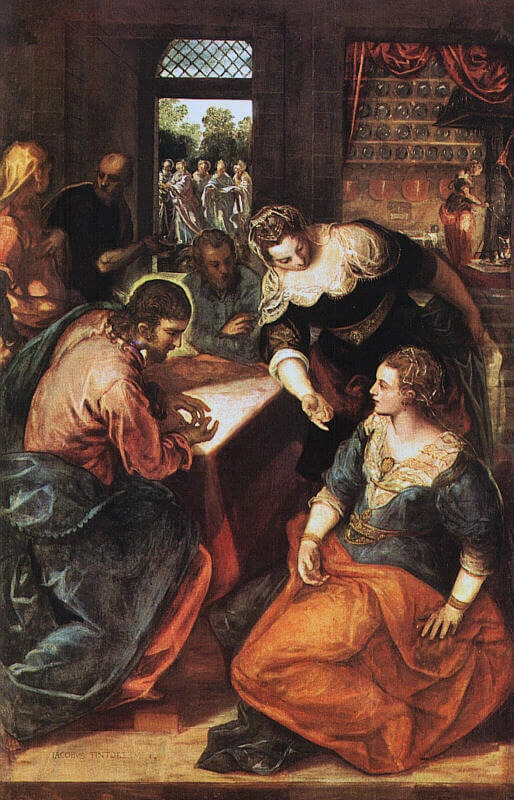38
Now it came to pass, as they went, that he entered into a certain village: and a certain woman named Martha received him into her house.
39
And she had a sister called Mary, which also sat at Jesus' feet, and heard his word.
40
But Martha was cumbered about much serving, and came to him, and said, Lord, dost thou not care that my sister hath left me to serve alone? bid her therefore that she help me.
41
And Jesus answered and said unto her, Martha, Martha, thou art careful and troubled about many things:
42
But one thing is needful: and Mary hath chosen that good part, which shall not be taken away from her.







